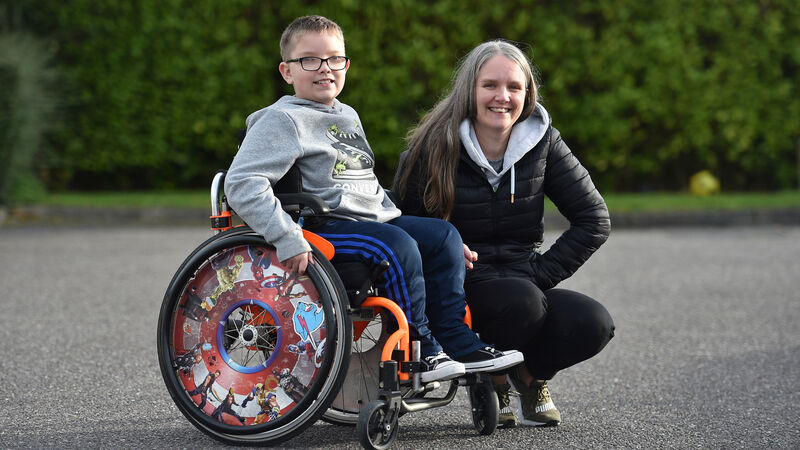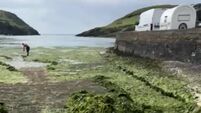'When you have a disability, it doesn’t stop you doing what you like' says Ben, 10, from Cork

Ben Mellis with his mum Michelle Sylvester at home in Carrigtwohill, Cork. Ben receives much of his treatment in Cork and, in some circumstances, in his own home. Picture: Dan Linehan
While the huge amount of obstacles facing many children with spina bifida and scoliosis regularly cause outrage, Ben Mellis, 10, has been able to get help near his home in Carrigtwohill, Cork.
One of his favourite activities is swimming in a therapy pool with his dad, he said.
















